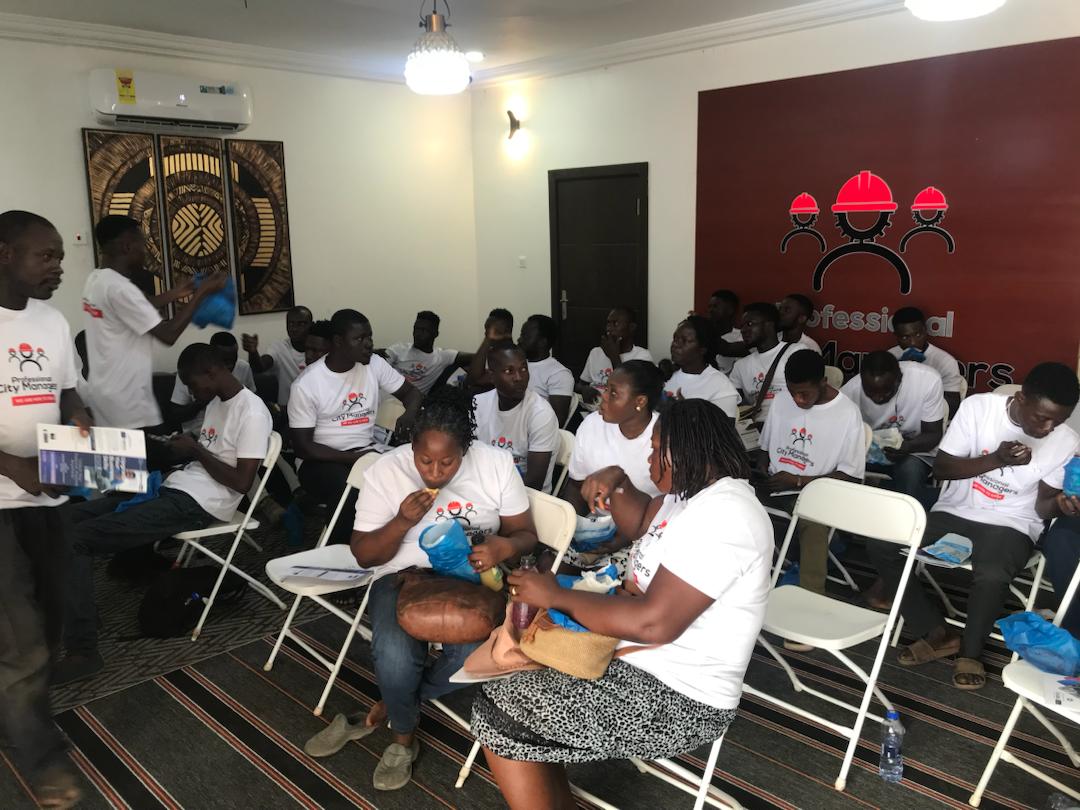

 A transformative agricultural innovation that leverages the Black Soldier Fly (BSF) converting organic waste into high-value products is gaining traction in Ghana, offering sustainable solutions for poultry, aquaculture, and vegetable production.
A transformative agricultural innovation that leverages the Black Soldier Fly (BSF) converting organic waste into high-value products is gaining traction in Ghana, offering sustainable solutions for poultry, aquaculture, and vegetable production.
The technology is being championed by the International Institute of Tropical Agriculture (IITA) under its Black Soldier Fly for Bio-Circular Economy and Environmental Sustainability (BBEST) project.
At the maiden Channel One Agrifair in Accra, Mr. Amuetey Nagetey, Interim Production Manager of the BSF Production Unit, highlighted the innovation’s potential to reshape Ghana’s agricultural landscape.
The BBEST project team mounted a live display illustrating the BSF life cycle and engaged visitors with insights into the technology’s process and benefits.
Among the key products showcased was certified BSF frass, an organic fertilizer approved by the Plant Protection and Regulatory Services Directorate (PPRSD) of the Ministry of Food and Agriculture (MoFA).
Mr Nagetey said the technology was a moderate-cost, healthier protein source for animal feed and as a tool for environmental sustainability.
“BSF technology is converting fruit, vegetable, kitchen, and slaughterhouse waste into high-protein larvae, a sustainable and locally available alternative to expensive imported fishmeal and soybean meal,” he explained.
Mr. Ankrah Twumasi, Monitoring, Evaluation, and Learning Specialist for the project, added that the nutrient-rich residue, known as frass, improves soil fertility and boosts vegetable yields.
“The technology, does not only enhances crop production, but also contributes to improved urban sanitation and reduces greenhouse gas emissions by diverting organic waste from landfills,” he noted.
Twumasi underscored the broader benefits of BSF farming: “It’s environmentally friendly, cost-effective, and addresses both waste management and feed insecurity.”
Mr. Daniel Fahene Acquaye, CEO of Agri-Impact, acknowledged the job creation potential of the technology, particularly for Ghanaian youth, and expressed interest in exploring partnership opportunities with IITA.
Mr. Ali Kwaku Ababio, Director of Prisons in charge of Agriculture, expressed his intention to incorporate BSF farming into prison rehabilitation and agriculture programs.
“This aligns with our ongoing poultry and aquaculture production efforts. We see great potential in this for food security and skills development,” he stated.
With growing awareness and adoption, BSF farming stands to significantly benefit Ghana’s agricultural sector, reducing dependence on imported feed, improving profitability for poultry farmers, managing organic waste more effectively, and advancing the country’s commitment to climate-smart agriculture.
Funded by the Norwegian Agency for Development Cooperation (Norad) the project is being implemented in Ghana, Mali, Niger, and the Democratic Republic of Congo
Source: GNA
The post BSF technology to revolutionise agriculture and waste management appeared first on Ghana Business News.
Read Full Story




















Facebook
Twitter
Pinterest
Instagram
Google+
YouTube
LinkedIn
RSS